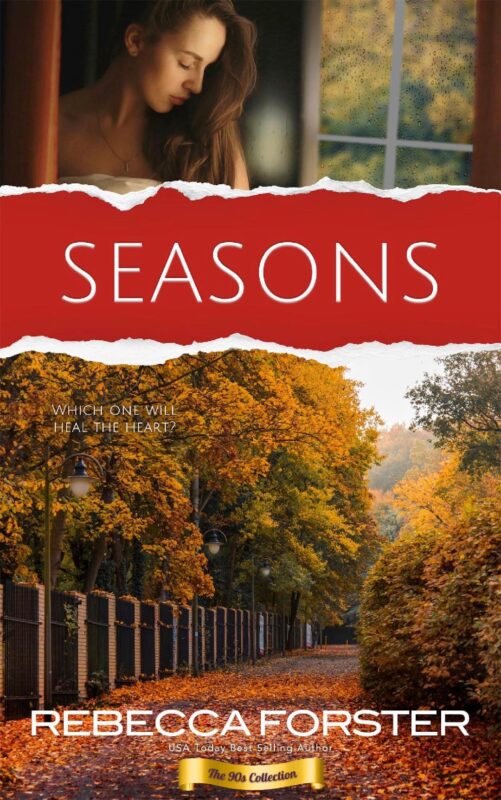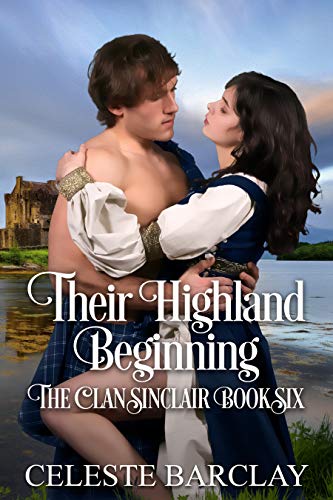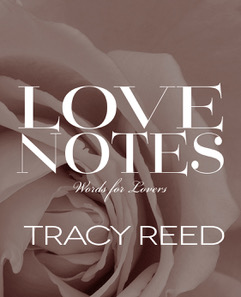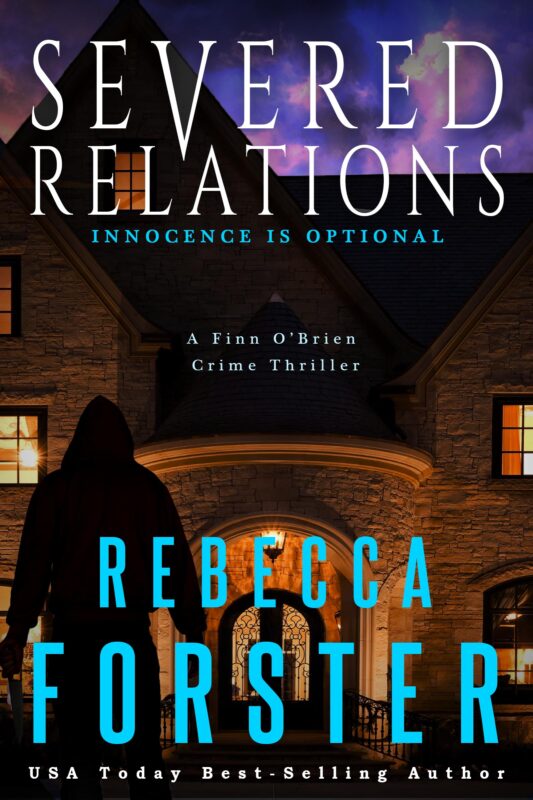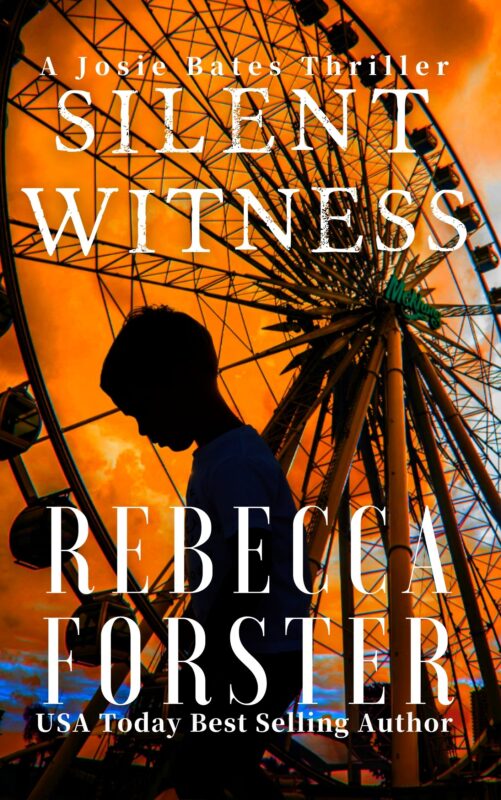
Dear Extra Squeeze Team, How Do I Know When to Stop Writing?

Rebecca Forster
USA Today Bestselling author of 35 books, including the Witness series and the new Finn O’Brien series.
This is an interesting question because it implies that the problem is with the end of a book. If that is the case, then I have never had a problem knowing when to stop writing. Before I begin I know the end. I even know the last sentence I want to type. But when it comes to overwriting, there’s more to the story (okay, pun intended)
In the thirty plus years I have been a working novelist I still overwrite the middle of the manuscript. I intrude on my own work with asides, philosophy, research information, angst and whatever else comes into my mind in the throes of creation.
Thanks to a wise editor (our own Jenny Jensen) I have learned to recognize this problem and deal with it as follows:
1) Don’t worry about it during the first draft.
2) On your first self-edit identify and cut what you believe to be extraneous information and place this in a file in case you wish to reinsert it later.
3) Read again. Keep cutting or reinsert information with an objective eye.
4) Send to your editor who – intimately knowing the author’s propensity to overwrite the middle – will identify anything that slows the story, creates questions or bores the reader.
Overwriting is not just a function of the end of the book but of the book itself. A story always has a beginning, middle and a resolution. Do not start writing before you know what that resolution is because it gives you a point on your literary horizon. That is where you must stop. The problem for me is that getting to that point is sometimes messy. Instead of writing that straight line from A-B, I zig-zag and overwrite.
P.S. In the years since I adopted the cut and save file I have never once gone back and used anything, but it sure makes me feel better to know it exists.
[tweetshare tweet=”Dear Extra Squeeze Team, How Do I Know When to Stop Writing?” username=”A_Slice of Orange”]

Jenny Jensen
Developmental editor who has worked for twenty plus years with new and established authors of both fiction and non-fiction, traditional and indie.
When the story is told. The rest is editing.
The goal is to tell the story that lives in your head. Keep writing until you get it all out and down on paper (or pixels). Length doesn’t matter at this point; it’s the story that counts. Once you type ‘The End’ and find yourself with 40,000 words you may have a novella. If the tally is between 80 and 90,000 it meets the average length for a novel in most genres. When the word count tips to 120,000 + you may have an epic (Sci Fi and Fantasy are often longer) or the need to lose 20 – 40,000 words. You’re now at the stage of the brutal self-edit.
There are no rules for how long a novel should be, but readers do have some expectations. Given those expectations of length the choice is yours as to which literary format you want. Regardless of bulk all successful fiction shares one characteristic: good structure with clean flow. A successful novel has a beginning where the characters and the problems are introduced, a middle where the characters evolve and the problems are dealt with, and an end with confrontation and resolution. That path is smooth and enjoyable for the reader because the flow is good – it carries the reader along seamlessly.
Overwriting is usually the cause of a too long word count and the cause of disjointed story flow. It’s all right – we all do it. You had to get it all down on the page. Now it’s time for some honest self-editing.
Dialog tags are a common cause of overwriting.
“Don’t,” she said with a fierce glint flashing in her eyes. Eleven words that flow so much better as three: “Don’t,” she hissed.
Too many words dampen the impact.
Do you have descriptive passages meant for mood and setting that are so elaborate they distract from the action? Cut, tighten and move the story along. Do you find you’ve written back-stories and sidebars meant to enlarge on character or setting but are actually an unnecessary detour? If you’ve got your heroine on a dark country road when her tire blows and then she falls into memories of a frightening slumber party from her past you’ve broken the flow of the tension for something that doesn’t add to the story. Delete it. (Oh I know, it’s hard to kill your children but you can always copy it into a file marked for future use.)
Read your work with an editor’s eyes. Every word, every scene must help carry the story along; it must add to the plot, build the tension, build on a character. Make certain your words all carry the necessary function for the story to flow so smoothly that the reader can’t look away. If you don’t get an editor, get a strong beta reader to help you peel away the extraneous dross. Once that’s been done correctly, what you have is the best your story can be.
Robin Blakely
PR/Business Development coach for writers and artists; CEO, Creative Center of America; member, Forbes Coaches Council.

When to stop writing—is that just when completing one book or…forever?!
With one book, I don’t think it’s a problem for most writers because they tend to construct their books out of order, and the end is often completed long before the middle. For me it is, anyway! From there, it is just a case of connecting the dots and making sure there aren’t any incomplete subplots or character resolutions. If your book is overshooting 300,000 words and you’re not writing epic fantasy, however, then it’s probably time to stop!
Ever wonder what industry professionals think about the issues that can really impact our careers? Each month The Extra Squeeze features a fresh topic related to books and publishing.
Amazon mover and shaker Rebecca Forster and her handpicked team of book professionals offer frank responses from the POV of each of their specialties — Writing, Editing, PR/Biz Development, and Cover Design.
Do you have a writing or publishing question?
Send them to the Extra Squeeze Team!

- About The Extra Squeeze
- Contact The Extra Squeeze
- Recent Posts
-
March 29, 2021
The Extra Squeeze Team loves book. So, we’re going to hold a book club on A Slice of Orange, and we want to hear from YOU.
-
March 21, 2021
The Extra Squeeze Team loves book. So, we’re going to hold a book club on A Slice of Orange, and we want to hear from YOU.
-
March 14, 2021
The Extra Squeeze Team loves book. So, we’re going to hold a book club on A Slice of Orange, and we want to hear from YOU.
-
March 7, 2021
The Extra Squeeze Team loves book. So, we’re going to hold a book club on A Slice of Orange, and we want to hear from YOU.
-
March 1, 2021
The Extra Squeeze Team loves book. So, we’re going to hold a book club on A Slice of Orange, and we want to hear from YOU.

Affiliate Links
A Slice of Orange is an affiliate with some of the booksellers listed on this website, including Barnes & Nobel, Books A Million, iBooks, Kobo, and Smashwords. This means A Slice of Orange may earn a small advertising fee from sales made through the links used on this website. There are reminders of these affiliate links on the pages for individual books.
Search A Slice of Orange
Find a Column
Archives
Featured Books
LOVE NOTES
Love isn't a one note emotion...it's a symphony with a sweet melody.
More info →SEVERED RELATIONS
Detective Finn O'Brien catches the call: two kids and their nanny are dead behind the gates of Freemont Place.
More info →SILENT WITNESS
A mentally challenged child is dead; his father will stop at nothing to see the killer punished.
More info →Newsletter
Contributing Authors
Search A Slice of Orange
Find a Column
Archives
Authors in the Bookstore
- A. E. Decker
- A. J. Scudiere
- A.J. Sidransky
- Abby Collette
- Alanna Lucus
- Albert Marrin
- Alice Duncan
- Alina K. Field
- Alison Green Myers
- Andi Lawrencovna
- Andrew C Raiford
- Angela Pryce
- Aviva Vaughn
- Barbara Ankrum
- Bethlehem Writers Group, LLC
- Carol L. Wright
- Celeste Barclay
- Christina Alexandra
- Christopher D. Ochs
- Claire Davon
- Claire Naden
- Courtnee Turner Hoyle
- Courtney Annicchiarico
- D. Lieber
- Daniel V. Meier Jr.
- Debra Dixon
- Debra H. Goldstein
- Debra Holland
- Dee Ann Palmer
- Denise M. Colby
- Diane Benefiel
- Diane Sismour
- Dianna Sinovic
- DT Krippene
- E.B. Dawson
- Emilie Dallaire
- Emily Brightwell
- Emily PW Murphy
- Fae Rowen
- Faith L. Justice
- Frances Amati
- Geralyn Corcillo
- Glynnis Campbell
- Greg Jolley
- H. O. Charles
- Jaclyn Roché
- Jacqueline Diamond
- Janet Lynn and Will Zeilinger
- Jeff Baird
- Jenna Barwin
- Jenne Kern
- Jennifer D. Bokal
- Jennifer Lyon
- Jerome W. McFadden
- Jill Piscitello
- Jina Bacarr
- Jo A. Hiestand
- Jodi Bogert
- Jolina Petersheim
- Jonathan Maberry
- Joy Allyson
- Judy Duarte
- Justin Murphy
- Justine Davis
- Kat Martin
- Kidd Wadsworth
- Kitty Bucholtz
- Kristy Tate
- Larry Deibert
- Larry Hamilton
- Laura Drake
- Laurie Stevens
- Leslie Knowles
- Li-Ying Lundquist
- Linda Carroll-Bradd
- Linda Lappin
- Linda McLaughlin
- Linda O. Johnston
- Lisa Preston
- Lolo Paige
- Loran Holt
- Lyssa Kay Adams
- Madeline Ash
- Margarita Engle
- Marguerite Quantaine
- Marianne H. Donley
- Mary Castillo
- Maureen Klovers
- Megan Haskell
- Melanie Waterbury
- Melissa Chambers
- Melodie Winawer
- Meriam Wilhelm
- Mikel J. Wilson
- Mindy Neff
- Monica McCabe
- Nancy Brashear
- Neetu Malik
- Nikki Prince
- Once Upon Anthologies
- Paula Gail Benson
- Penny Reid
- Peter Barbour
- Priscilla Oliveras
- R. H. Kohno
- Rachel Hailey
- Ralph Hieb
- Ramcy Diek
- Ransom Stephens
- Rebecca Forster
- Renae Wrich
- Roxy Matthews
- Ryder Hunte Clancy
- Sally Paradysz
- Simone de Muñoz
- Sophie Barnes
- Susan Squires
- T. D. Fox
- Tara C. Allred
- Tara Lain
- Tari Lynn Jewett
- Terri Osburn
- Tracy Reed
- Vera Jane Cook
- Vicki Crum
- Writing Something Romantic
Affiliate Links
A Slice of Orange is an affiliate with some of the booksellers listed on this website, including Barnes & Nobel, Books A Million, iBooks, Kobo, and Smashwords. This means A Slice of Orange may earn a small advertising fee from sales made through the links used on this website. There are reminders of these affiliate links on the pages for individual books.





